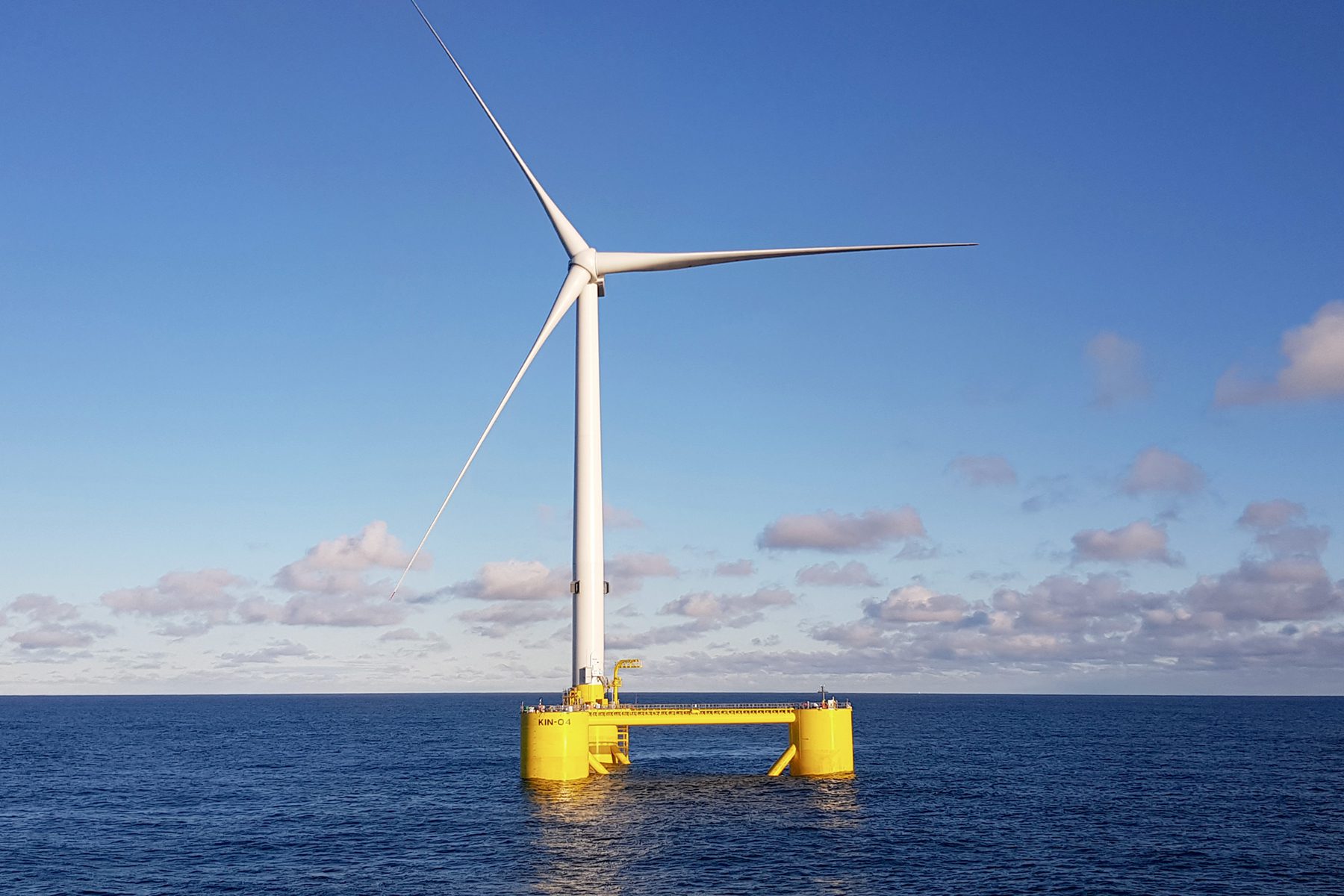FLORIDA research project
Project title: FLORIDA – Floating wind turbine wake interaction and Dynamics
Summary:
With the shift towards floating offshore wind farms, new problems arise when investigating the turbulent wakes of wind turbines The additional floating motion of the platforms affects the interaction of the turbine with the incoming wind field and thereby the generation of the wakes, which are already complex in their evolution and structures for bottom-fixed machines. Different platform types show design-specific damping of their motion, which is induced by ambient ocean waves and the interaction of the turbine with the turbulent incoming wind field. This results in periodic motion patterns, which are also be printed on the dynamics of the wakes (wake center) and even trigger a faster recovery of the wake velocity deficit. Either way, in wind farm configurations these wakes will hit other floating turbines and will have an impact on their performance and on their floating behavior.
For farm layout optimization and to decrease fatigue loads and thus maintenance times (that are costly and time-consuming offshore), it is therefore important to understand the wake dynamics of floating wind turbines. In the systematic investigation of wind turbine wake dynamics, the relevance of wind tunnel experiments is widely acknowledged. In the project FLORIDA, we therefore propose to extend the investigations to floating wind turbines by adding pre-defined motion to turbine models, under realistic as well as user-defined turbulent inflow conditions. The goal is to identify the impact of floating motion in various degrees of freedom on the wake dynamics with focus on wake meandering. In addition, special turbulent inflow conditions are used to selectively investigate the influence of different length scales on wake meandering. Based on the experimental data, new wake models will be developed for floating wind turbines that capture the floating-added dynamics of the wake meandering.
The approach includes both the further development of existing dynamic models and the extension with stochastic methods. The models will be used to generate wind fields with realistic wake characteristics of floating turbines as input for fully-coupled simulations and wave tank Software-in-the-Loop experiments in which (1) a software calculates the aerodynamic loads acting on the floating turbine with such waked wind fields and (2) the aerodynamic loads are emulated with 6 degree of freedom actuators. The influence of the incoming waked wind fields on the floater behavior will be then investigated.
- Project type: Joint project
- Term: 2024 – 2027
- Funding: DFG funding
- Research partner: École Centrale de Nantes
Contact:
University of Oldenburg
Institute of Physics – ForWind
Dr. Michael Hölling
Küpkersweg 70
D-26129 Oldenburg
Tel: +49 (0)441 / 798-3951
Fax: +49 (0)441 / 798-5099
Email: michael.hoelling@uol.de

More information
Project FLORIDA at GEPRIS (with information on project partners)
